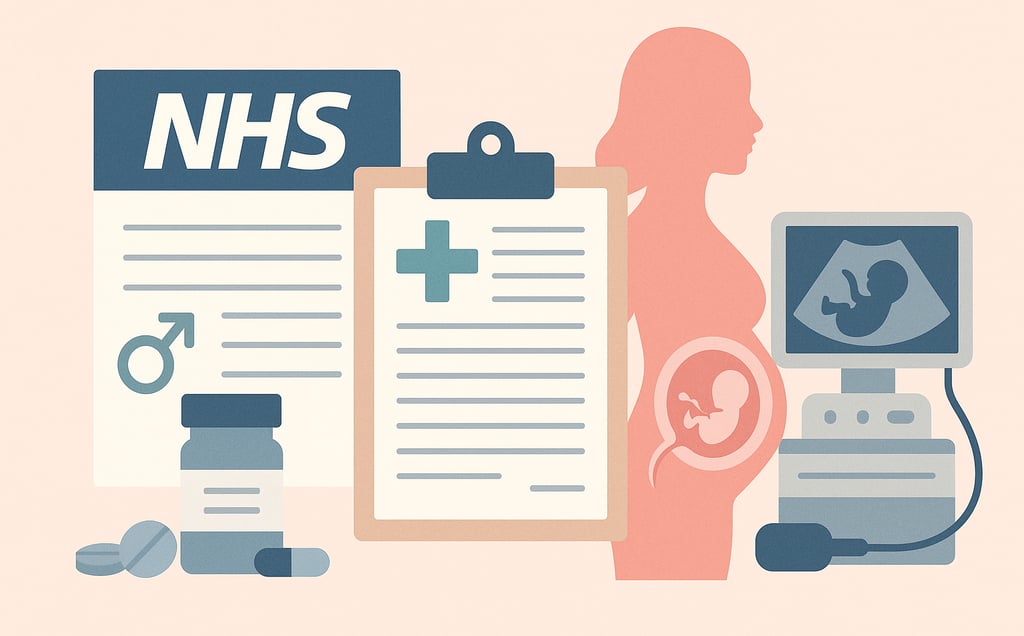What Does the NHS Cover for IVF? Fertility Treatment, Eligibility, and Hidden Costs Explained
What fertility treatments does the NHS cover? Find out what's included, how access varies by region, and what you may still need to pay for yourself.
CHOOSING A PATH


When you’re starting fertility treatment in the UK, one of the first questions you’ll face is whether the NHS will cover any of it—and how much you might need to pay yourself. The answer is… it depends. While the NHS does offer fertility services, access and coverage vary significantly depending on where you live, your personal circumstances, and your local NHS funding body (previously known as Clinical Commissioning Groups, or CCGs).
Let’s take a clear look at what the NHS can provide, where the limits are, and what to be aware of as you plan your fertility journey.
What Fertility Treatment Does the NHS Cover?
If you meet the eligibility criteria in your area, the NHS may cover:
Initial fertility investigations (for both partners, or a single patient)
Ovulation induction medication (such as Clomid/Letrozole)
IUI (in limited cases, usually for same-sex couples or donor sperm)
IVF cycles (the number of cycles varies by region)
ICSI (in some cases, especially with male factor infertility)
Donor sperm or eggs (sometimes included, but often limited)
Fertility preservation for medical reasons (e.g. cancer patients undergoing chemo)
It’s important to note: IVF is not a guaranteed offering on the NHS for everyone. Many people assume it will be covered automatically—but in reality, there are multiple criteria you must meet.
Why It Varies: NHS Postcode Lottery
Historically, IVF coverage was determined by Clinical Commissioning Groups (CCGs), which have now been absorbed into Integrated Care Boards (ICBs). Each ICB decides how much fertility care to offer, and who qualifies. That’s why some people are offered three full IVF cycles, while others are offered none at all—depending solely on where they live.
Factors that influence access include:
Age (upper age limits for women vary, often between 39–42)
BMI limits (many areas require a BMI of 19–30)
Smoking status (both partners may need to be non-smokers)
Relationship status (some areas still require heterosexual cohabitation, though this is changing)
Length of trying to conceive (usually 2 years naturally or 6–12 months with documented issues)
What Might You Still Have to Pay For?
Even if you qualify for NHS-funded IVF, there may still be some costs:
Fertility supplements or vitamins
Some medications (NHS may cover the basics but not add-ons)
Frozen embryo storage (some cover 1 year, others don’t include it)
Additional procedures (e.g. embryo glue, endometrial scratch)
Private scans or second opinions (if you choose to go outside the NHS pathway)
Travel and parking (if referred to a clinic far from home)
Optional extras like embryo freezing beyond 1 year, genetic testing (PGT-A), or add-on treatments are rarely funded by the NHS and would need to be paid privately.
Can You Combine NHS and Private Care?
Yes—many people do a mixed pathway:
Start with NHS tests and first round(s) of IVF
Continue with private care if further cycles are needed
Choose private care from the outset if not eligible for NHS help
Some clinics offer discounts if you transfer from NHS care, or will allow you to pay only for specific services (e.g. freezing, medications, or scans).
Tips for Navigating NHS Fertility Access
Check your ICB’s policy directly (search: “NHS fertility policy + [your area]”)
Ask your GP to refer you early, as wait times can be long
Keep track of BMI, smoking status, and age cutoffs
If you’re ineligible, ask for the reason in writing and consider appealing
Speak with a fertility charity (like Fertility Network UK) for guidance and advocacy
The NHS can be a lifeline when it comes to fertility care—but access is uneven and sometimes frustrating. If you’re just beginning your journey, understanding what’s covered (and what isn’t) will help you plan realistically and advocate for yourself with confidence.
For many, the NHS provides a starting point—but whether you stay on the public path or move into private care, knowing your rights and options is essential.
© 2025. All rights reserved.
